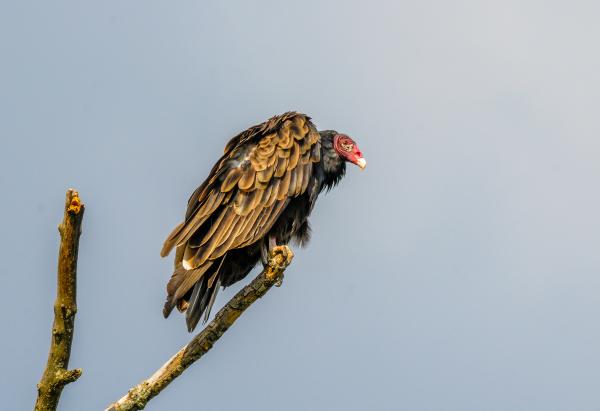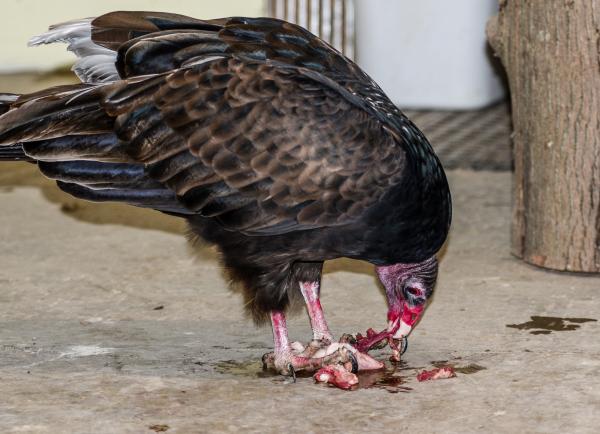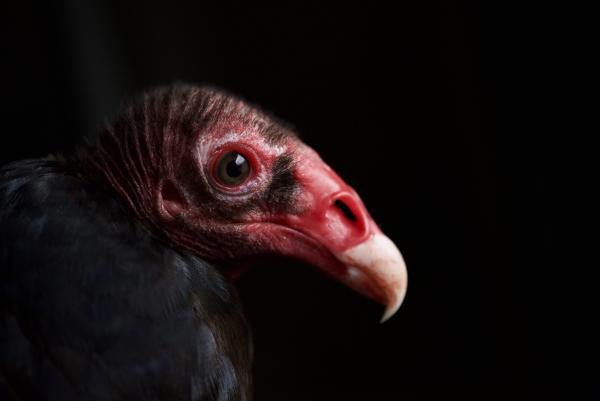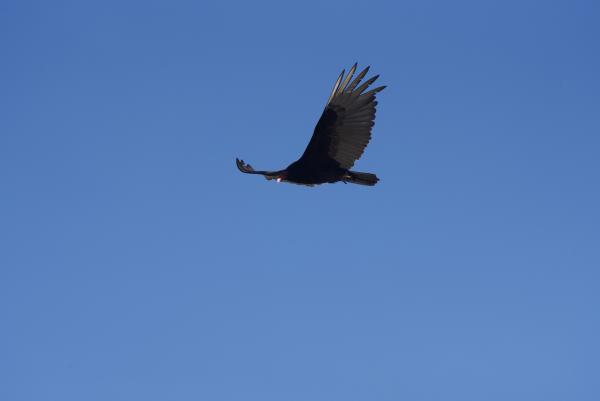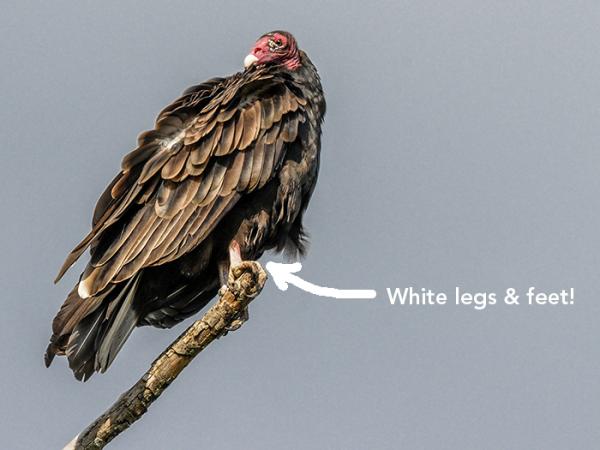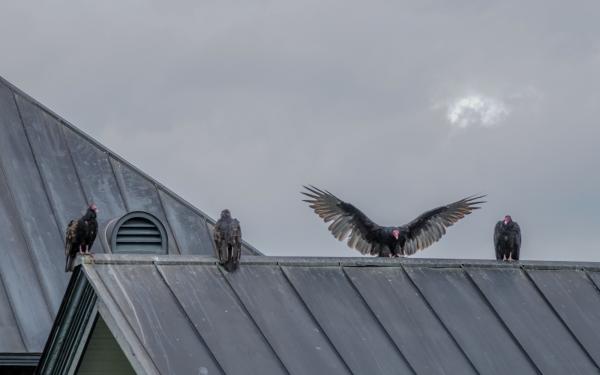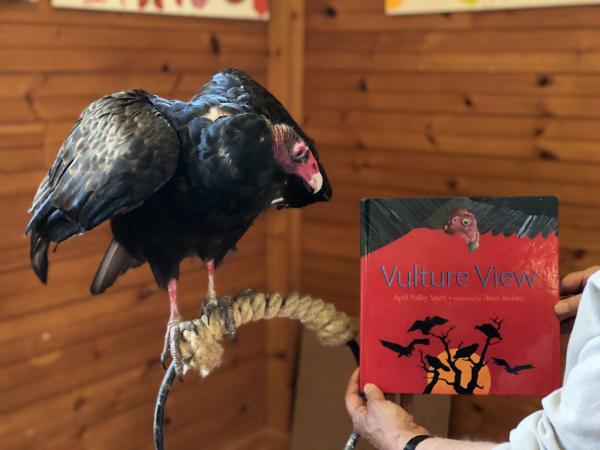Love this!
Have you thanked a vulture, today?
A blog post for vulture lovers and those who aren’t so sure…
Vultures are absolutely fascinating, unique, and ecologically valuable - and gorgeous if you ask me! By the end of this blog post, I hope that you’ll love them as much as I do, but at the very least, that you’ll respect them for the wonderful creatures they are!
I am lucky enough to have spent some time up close and personal with Turkey Vultures in a variety of wildlife care facilities, most recently as a volunteer with Outreach For Earth Stewardship. This amazing organization, headed up by Craig Newman with his group of dedicated volunteers, cares for injured birds of prey and provides educational outreach with live raptor ambassadors. While the goal of any bird intake is to rehab and release the bird back into the wild, it is not always possible. Sometimes patients are unreleasable by law because they wouldn’t survive on their own in the wild. With federal and state permits, these are the birds that become OFES wild educational ambassadors.
Here in Vermont, Turkey Vultures are the most prevalent vulture so I am going to highlight some of their remarkable characteristics. (Black Vultures sometimes find their way this far north, too, and it is quite exciting when they do!)
Vultures are “essential” public workers.
By eating roadkill and other animal carcasses, vultures help clean up our environment and prevent diseases from spreading to other animals and humans. They are uniquely built for this service. They have strong immune systems and powerful, sharp, hooked beaks perfect for tearing flesh and getting into even the smallest areas of a carcass. Vultures living in North, Central, and South America also have iconic “bald” heads, which prevent feathers from becoming soiled while feeding. Basically, a delicious meal for a vulture equals disease prevention for us - it's a win-win!
A superb sense of smell
Birds do not typically have a strong sense of smell. Those that do are few and far between. But Turkey Vultures not only have a powerful sense of smell, they have one of the LARGEST olfactory systems of all birds. They can smell carrion (the decaying flesh of dead animals) from over a mile away!!! That’s about as far as 17 football fields. (The smaller Black Vulture, with its less sensitive nose, will often find its next meal by following a Turkey Vulture!)
Energy efficient flight
Turkey Vultures can soar through the air for what seems like forever. How is that possible!? They spread their wings over warm air rising from the Earth's surface (thermal currents), and the air lifts the vultures along with it. (Warm air around built sites like power plants can do the same thing.) Once a vulture reaches a certain height, it can flap its wings to glide in whichever direction it would like to go, eventually finding another current of warm air to lift it effortlessly back up into the sky. Talk about energy efficient!!! Keep an eye out for a vulture’s classic soaring silhouette, with its wings positioned in the shape of a V. You’ll also notice they weeble wobble as the wind changes direction and speed!
Clever -- if gross! -- Defense Mechanism
Ok, I know I said I want you to love vultures so try not to be grossed out by this next fact and respect it as a brilliant defense mechanism. If a vulture is being harassed or bothered, it can vomit putrid food remains! This turns out to be an excellent predator deterrent. (Not surprising, huh?) Unfortunately, injured vultures at a wildlife care center can't necessarily distinguish a rehabber from a predator, so rehabbers have to create a calm environment to avoid vulture vomit! As scavengers, vultures also don’t know when they will find their next meal, so they often gorge themselves when they can. Sometimes they’ll get so full that they can’t even fly off. Vomiting can lighten their load for take off in case of an emergency.
This may lead you to wonder, what would ever hunt a vulture? Other large birds such as hawks or eagles are possibilities. So are humans, who might only see vultures as a nuisance and not understand their importance to us. (Injuring or killing these birds, of course, is illegal under the Migratory Bird Treaty Act.) And, although their stomachs are a fortress against germs that would typically make others sick, Turkey Vultures can still die from ingesting lead or rodenticide consumed by their prey.
Vulture sanitizer, anyone?
Turkey Vultures have brilliant red legs that match their red heads but you often wouldn’t know that because their legs are covered in white excrement. They defecate (poop) on their legs in an effort to cool their bodies down on hot days. Their excrement is also like a sanitizer: it’s highly acidic and can kill bacteria clinging to a vulture’s feet and legs. Bottle of vulture sanitizer, anyone?
Sun bathing beauties
Have you ever seen a group of Turkey Vultures roosting together in a large tree or the top of a building, and noticed many of them had their wings stretched out as if hugging the sky? Well, they aren’t just showing off their stunning six-foot wingspans, they are warming up in the sun’s rays or drying off feathers dampened by the weather or a recent messy feeding. Ongoing studies also suggest that the sun may help control avian parasites like lice--the sun may be a non-chemical pesticide!
Hissssss!
Turkey Vultures do not have a voice box like humans or most birds, so they can not tweet a harmonious melody. They CAN grunt and hiss, which is just as beautiful as any bird's song. They often grunt or hiss when courting, feeding, or fighting. Want to hear what it sounds like? Click on the video below from Craig Newman of OFES!
I could go on all day about the wonders of vultures! But for now, I hope that when you see one while you’re out and about, you’ll look at them with respect and maybe a little love. I sure do.
Learn more about vultures!
- Continue the Turkey Vulture fun with this Vulture Activity book produced by Hawk Mountain Sanctuary!
- Both Cat and Anubis recommend Vulture View, by April Pulley Sayre. Vulture View is a children’s book that celebrates the Turkey Vulture through beautiful illustrations and poetic verse.
Comments
I now love vultures ❤️ great info
Wonderful article, Cat!! I too love all vultures, but especially Turkey Vultures. I also got acquainted with Black Vultures when we lived in Virginia.
Watching buzzards (turkey vultures) riding the air currents high above my head is an incredibly therapeutic experience! I am in awe of these magnificent birds who do not get the credit they deserve as disease-preventers and are not seen for their true beauty as they float gracefully in the sky. I stand in awe envying the fun they clearly seem to be having!
hello
I have seen what I think are turkey vultures soar low over my art studio in North Thetford VT. The go right over a chicken coop and head toward the CT River close by. Do they eat live chickens? Would you mind if I use your soaring photo in a painting?
Hi Jonathan,
Sure you may use the photo for a painting.
As for your question, turkey vultures feed almost entirely on carrion--dead animal carcasses. They may rarely catch live prey, usually a sick bird or animal, but your chickens should be safe. Black vultures more commonly catch live prey. In addition to our blog, you can find out more here: https://www.hawkmountain.org/raptors/turkey-vulture
